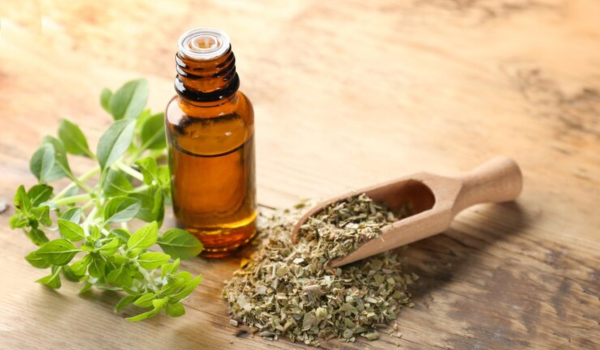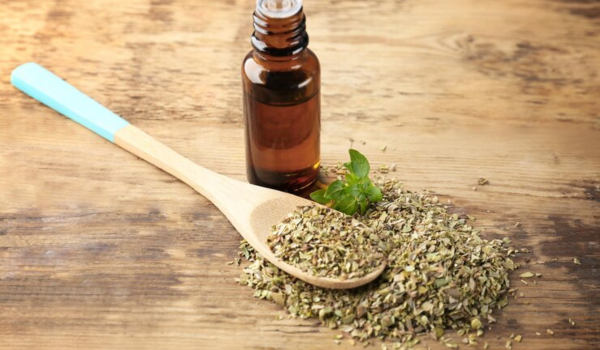Oregano Oil Benefits: Natural Health Support
Unlocking the Healing Power of Oregano Oil: A Comprehensive Guide

Oregano oil, derived from the Origanum vulgare plant, has been celebrated for centuries not only as a culinary herb but also as a potent medicinal agent.
Rich in bioactive compounds like carvacrol and thymol, oregano oil offers a myriad of health benefits.
This comprehensive guide delves into the numerous advantages of oregano oil, its applications, safety considerations, and how to incorporate it into your wellness routine.
What Is Oregano Oil?
Oregano oil is an essential oil extracted from the leaves and flowers of the oregano plant through steam distillation.
It is renowned for its potent antimicrobial, anti-inflammatory, antioxidant, and antifungal properties.
The primary active compounds in oregano oil are carvacrol and thymol, both of which contribute significantly to its therapeutic effects.
Key Health Benefits of Oregano Oil
1. Antimicrobial Properties
- Oregano oil exhibits strong antimicrobial activity, making it effective against a wide range of bacteria, fungi, and viruses.
- Studies have shown that carvacrol, a major component of oregano oil, can inhibit the growth of harmful bacteria such as Escherichia coli and Staphylococcus aureus.
- Additionally, oregano oil has demonstrated efficacy against antibiotic-resistant strains, highlighting its potential as an alternative antimicrobial agent.
2. Anti-Inflammatory Effects
- Chronic inflammation is linked to various health conditions, including heart disease and autoimmune disorders.
- Oregano oil contains compounds like carvacrol and thymol that have shown anti-inflammatory effects in both animal and laboratory studies.
- For instance, one animal study found that carvacrol reduced swelling in mice by up to 57%.
3. Antioxidant Protection
- Oregano oil is rich in antioxidants, which play a crucial role in protecting the body from oxidative stress and free radical damage.
- The antioxidants in oregano oil, particularly carvacrol and thymol, may help reduce the risk of chronic diseases such as cancer and heart disease by neutralizing harmful free radicals.
4. Digestive Health Support
- Oregano oil may aid in maintaining a healthy digestive system. Research indicates that it can help treat conditions like Small Intestinal Bacterial Overgrowth (SIBO) by inhibiting the growth of harmful bacteria in the gut.
- Additionally, oregano oil has been found to alleviate symptoms of indigestion, bloating, and gas, promoting overall digestive health.
5. Respiratory Health Benefits
- The antimicrobial and anti-inflammatory properties of oregano oil extend to respiratory health.
- It has been used traditionally to relieve symptoms of colds, coughs, and bronchitis.
- Oregano oil may help clear mucus, reduce inflammation in the airways, and combat respiratory infections, thereby supporting overall respiratory function.
6. Skin Health and Acne Treatment
- Oregano oil’s antibacterial and anti-inflammatory properties make it effective in treating skin conditions like acne.
- Applying diluted oregano oil to the skin can help reduce acne lesions and prevent new breakouts.
- Moreover, it may promote wound healing and protect against skin infections, making it a valuable addition to skincare routines.
7. Immune System Boost
- Regular use of oregano oil may enhance the body’s immune response.
- Its antimicrobial properties help protect against infections, while its antioxidant content supports immune cell function.
- Incorporating oregano oil into your wellness regimen may contribute to a stronger, more resilient immune system.
8. Weight Management
- Emerging research suggests that oregano oil may play a role in weight management.
- Carvacrol, a compound found in oregano oil, has been shown to influence genes involved in fat metabolism, potentially reducing fat accumulation.
- While more human studies are needed, these findings indicate that oregano oil could be a supportive element in weight management strategies.

How to Use Oregano Oil Safely?
Oregano oil is available in various forms, including essential oils, capsules, and tinctures. It’s essential to use oregano oil properly to avoid potential side effects:
- Dilution: Always dilute oregano essential oil with a carrier oil (like coconut or olive oil) before applying it to the skin to prevent irritation.
- Dosage: Follow the recommended dosage on the product label or consult with a healthcare professional to determine the appropriate amount.
- Internal Use: If considering oral consumption, ensure the product is labeled as safe for internal use.
- Consultation: Before starting any new supplement, especially if you are pregnant, breastfeeding, or on medication, consult with a healthcare provider.
Potential Side Effects and Considerations
While oregano oil offers numerous health benefits, it’s important to be aware of potential side effects:
- Skin Irritation: Undiluted oregano oil can cause skin irritation or allergic reactions in some individuals.
- Gastrointestinal Issues: Ingesting large amounts may lead to stomach upset, nausea, or vomiting.
- Drug Interactions: Oregano oil may interact with certain medications, including blood thinners and diabetes medications.
- Pregnancy and Breastfeeding: The safety of oregano oil during pregnancy and breastfeeding has not been well studied; therefore, it’s advisable to avoid its use during these times.
Incorporating Oregano Oil into Your Wellness Routine
Oregano oil can be a valuable addition to your health regimen. There are many ways to harness the benefits of oregano oil depending on your health goals and preferences.
Here’s a guide to the most effective methods of incorporating this powerful essential oil into your daily routine:
1. Internal Use (Capsules or Drops)
- Capsules: One of the easiest and safest ways to consume oregano oil internally is through pre-dosed capsules. These are ideal for immune support, fighting internal infections, or targeting digestive issues like bloating or SIBO (Small Intestinal Bacterial Overgrowth).
- Liquid Drops: If using liquid oregano oil internally, ensure it’s labeled safe for consumption. Add 1–3 drops to a glass of water or juice. Do this once daily, not more than 10–13 days in a row unless directed by a healthcare provider.
💡 Tip: Because oregano oil has a very strong, spicy flavor, combining it with olive oil or honey can help reduce the burning sensation.
2. Topical Use (For Skin Health & Wound Care)
To use oregano oil on the skin:
- Dilute 1 drop of oregano oil in 1 teaspoon of a carrier oil (e.g., coconut oil, jojoba oil).
- Apply directly to acne-prone areas, fungal infections, or minor cuts and scrapes.
- Avoid using near the eyes, nose, or on broken skin without proper dilution.
⚠️ Warning: Never apply undiluted oregano oil directly to the skin, it can cause severe irritation or burns.
3. Aromatherapy (For Respiratory Relief)
- Add a few drops of oregano oil to a diffuser to help purify the air and relieve symptoms of colds, sinus infections, or respiratory irritation.
- Alternatively, inhale steam by adding a drop or two to hot water. Drape a towel over your head and breathe in the vapor for 5–10 minutes.
This method is excellent for clearing the sinuses and fighting airborne pathogens.
4. Household Uses
Thanks to its antimicrobial properties, oregano oil also makes a fantastic non-toxic cleaner. You can:
- Add 10 drops to a spray bottle of water and vinegar to disinfect surfaces.
- Use it in laundry to kill bacteria and leave fabrics smelling fresh.
- Mix it with other essential oils like tea tree or lavender for an all-natural room spray.
Scientific Research Supporting Oregano Oil Benefits
More research is emerging to validate the long-standing traditional uses of oregano oil. Here are some highlights:
- Antibacterial Activity: A 2011 study published in the journal PLOS One demonstrated oregano oil’s effectiveness in eliminating Staphylococcus aureus, a bacterium responsible for various infections.
- Antifungal Power: Research in Molecular and Cellular Biochemistry (2015) showed that oregano oil inhibits Candida albicans, the fungus responsible for yeast infections.
- Antiviral Properties: A study in the Journal of Applied Microbiology found that oregano oil inhibited viruses like norovirus, making it a potential complementary tool during flu season.
These findings suggest that oregano oil’s reputation as a “natural antibiotic” may indeed be backed by science though more human clinical trials are still needed.
Who Should Avoid Oregano Oil?
Despite its many benefits, oregano oil is not suitable for everyone:
- Pregnant or Breastfeeding Women: The oil may affect hormones or uterine contractions.
- People on Blood Thinners: Oregano can increase the risk of bleeding.
- Diabetics: Oregano may lower blood sugar; use cautiously.
- Allergy-Prone Individuals: Anyone allergic to mint, basil, or sage may also react to oregano.
Always consult your physician before using oregano oil, especially if you are on medications or have chronic conditions.
Oregano Oil vs. Oregano Herb: What’s the Difference?
- Oregano herb is a staple in Mediterranean cooking and contains antioxidants and nutrients when consumed fresh or dried.
- Oregano essential oil, on the other hand, is far more concentrated. Just one drop of the oil can be equivalent to multiple teaspoons of dried oregano.
So while both forms are healthy, they serve different purposes: the herb is great for culinary use, while the oil is reserved for therapeutic applications.

Conclusion
If you’re looking for a natural remedy with broad-spectrum antimicrobial, anti-inflammatory, and antioxidant powers, oregano oil is a compelling choice.
From digestive aid and skin health to immune system support and respiratory relief, it offers wide-ranging benefits backed by traditional wisdom and emerging science.
However, with its potency comes responsibility: oregano oil must be used correctly to avoid adverse effects.
When in doubt, consult a naturopath or functional medicine provider, especially if you plan to use it internally or long term.
Oregano oil is a powerful essential oil with natural antibiotic, antifungal, and antiviral properties. It can support digestive health, immune response, respiratory function, and skin clarity.
Use it with care, always dilute, follow dosage recommendations, and avoid overuse.
Choose wild-crafted, organic oregano oil for the highest quality and safety. It’s best used as part of a holistic approach to wellness, not a standalone cure.
.